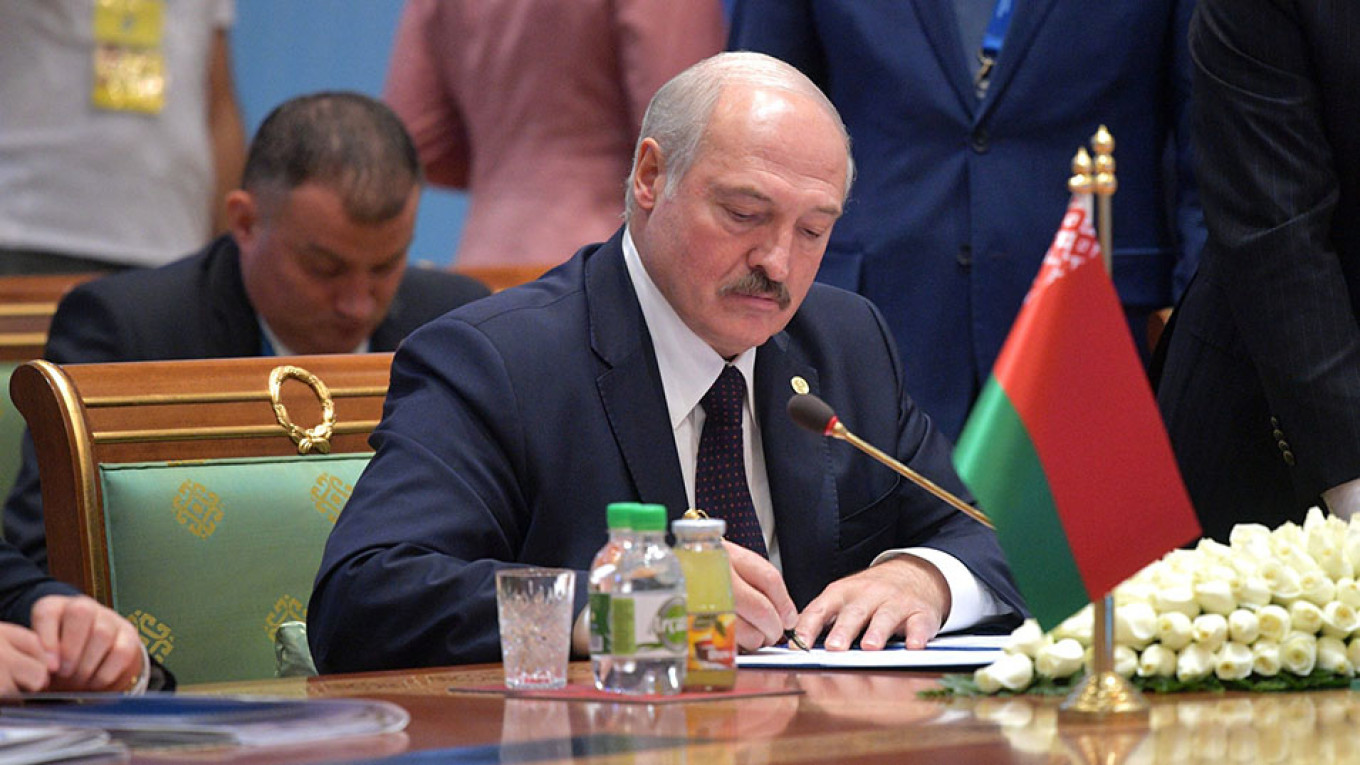
Belarussian President Alexander Lukashenko has criticized Russia for making it pay for combat aircraft deliveries and threatened to revise a key border control pact in the latest public rift between the close allies.
Belarus on Wednesday received two of the 12 Russian Su-30SM fighter jets it ordered in 2017, with two more expected next week. Belarus’ security chief said Thursday that the former Soviet state had paid full price for the aircraft rather than accept Russia’s offer to provide them for free in exchange for permission to deploy an air base in Belarus.
“We bought cutting-edge planes from Russia. But we’re performing the functions of defending Russia and its people, so why not help us?” Lukashenko said Thursday in a video posted on his website.
Russia and Belarus are members of a largely symbolic union state and are in talks to deepen their integration, fueling concerns of quiet annexation by Russia. The talks appeared to hit a snag last month when Belarus’ foreign minister rejected Russia’s terms of integration.
Speaking with his security chief and the head of border patrol, Lukashenko decried the “colossal” prices Minsk pays for Russian equipment.
Russia believes Lukashenko wanted Russia to deliver the Su-30SMs for free, an unnamed high-ranking Russian government official told the Vedomosti newspaper later Thursday. Another unnamed source with ties to Russia’s Defense Ministry said Moscow stopped free combat aircraft deliveries to Belarus after Lukashenko, under “external pressure,” kicked out a Russian squadron in 2013.
Lukashenko has ordered a revision of the joint Russian-Belarussian 1995 border protection deal that expires this month.
“We’re working in Russia’s interests, that costs money … and we’re still called freeloaders,” he said in the video. “Belarussians aren’t freeloaders.”
“We should prepare — as we’re doing — to act alone in defending the interests of Belarus” if Russia rejects its financial demands, Lukashenko said.
Belarus serves as a buffer between Russia and NATO members in Eastern Europe. It has been wary of allowing too much Russian influence despite Moscow propping up its economy with cheap energy and loans.
